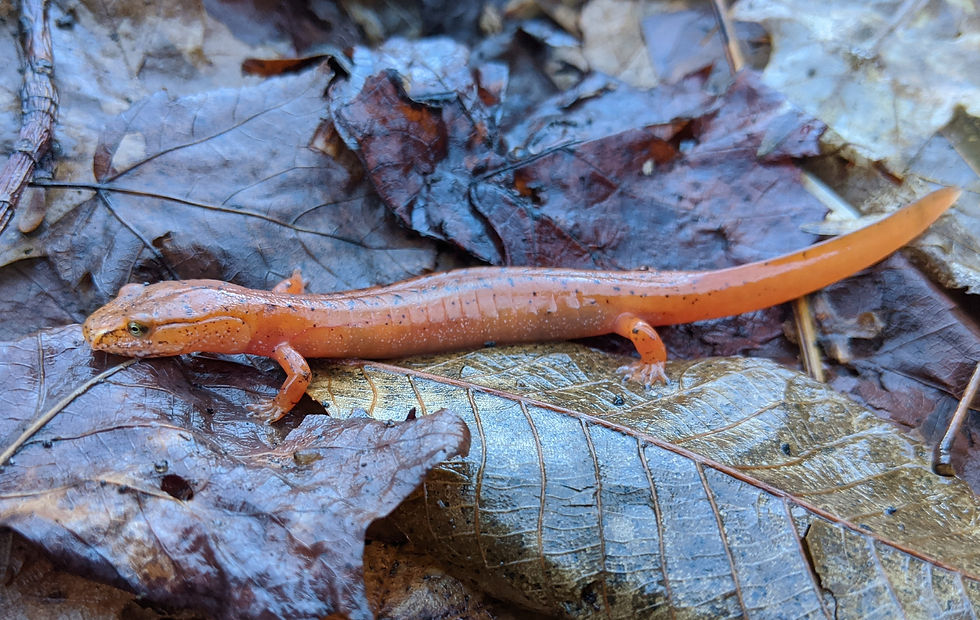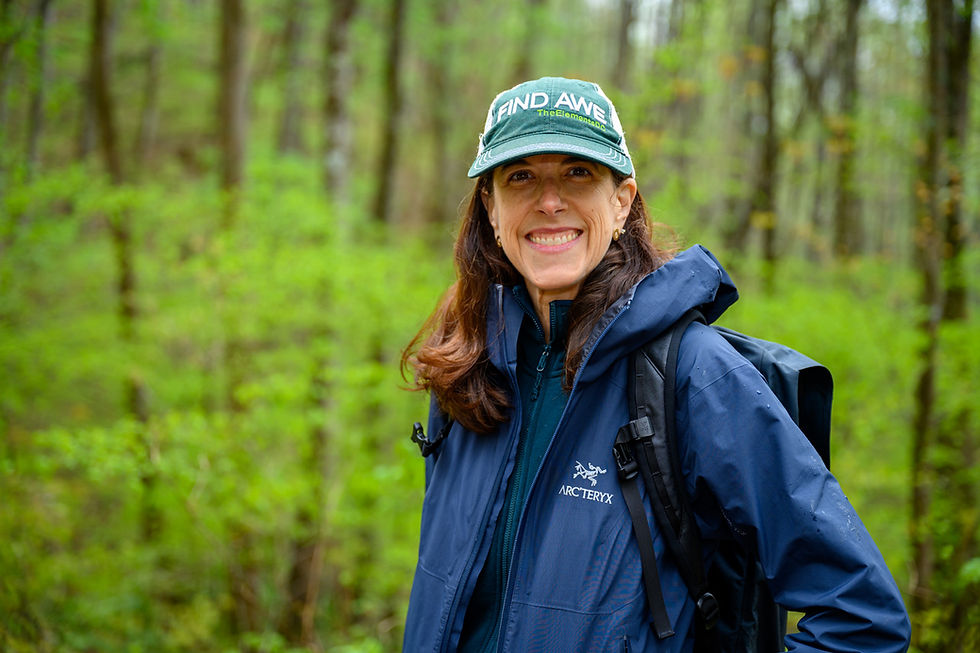Why I Fell in Love With Wilderness
- hikingresearch
- Jan 5, 2020
- 4 min read
I can’t say exactly when I finally realized how important wilderness is to me.
I started venturing out when I was 19, and had just moved to the mountains of western North Carolina to attend college. I was (and still am) in awe of the beauty of the mountains. Living in a small college town next to Great Smoky Mountains National Park provided a gateway to explore an United Nations International Biosphere Reserve every day. I ventured out on trails, went out on mountain ridges to look at the stars, took books out into the forest to read, set up my easel and canvas at mountain overlooks to create paintings, camped, and in the process learned a lot about myself.

Appalachian Wilderness (Photo by Mark Ellison)
I love all types of nature, but wilderness is what captivates me. Primarily because it provides freedom from human created noise, space to wander and explore, and biodiversity that is mesmerizing. I, like many others, find comfort just knowing that these places exist as an escape.
The Wilderness Act of 1964 created the legal definition of wilderness in the United States, and protected 9.1 million acres of federal land. This act defines wilderness as: “a wilderness, in contract with those areas where man and his own works dominate the landscape, is hereby recognized as an area where the earth and its community of life are untrammeled by man, where man himself is a visitor who does not remain.”

Spring Salamander (Photo by Mark Ellison)
When I was in graduate school at NC State I read the book Wilderness and the American Mind by Roderick Nash in preparation for my dissertation and research on the restorative benefits of hiking in wilderness. That book, more than any other helped me understand the importance of wilderness, not just to provide places for humans to experience nature, but also as land set aside for other species. Humans setting aside space for such a purpose epitomizes our responsibility for the well-being of the planet and all the species that inhabit it. The concept that we are visitors in wilderness, that it is a place that is set aside for other species, draws me in. So much of our planet is now developed with very little concern about the impact on the natural environment.
Wilderness is about so much more than what it can offer me. There are many reasons I love it, in addition to it’s place as a refuge for so many non-human species.

Rain on an Eastern Hemlock (Photo by Mark Ellison)
One of the most wonderful aspects of wilderness is that it does not place any demands on my attention. I am free to focus on what captures my interest. A bird chirping from high in a tree, clouds, the breeze, water flowing in a stream, the rustling of leaves, or looking deep into a dark night sky. It most cases, I do not hear any cars, or motorcycles, or people talking. There is an occasional plane, even at the One Square Inch of Silence in Olympic National Park that we visited last spring. My mind is free to wonder.
These soft fascinations, as Stephen & Rachel Kaplan describe them, are interesting but do not demand all our attention. This allows our indirect attention capacities to kick in, letting our directed attention capacities that we use regularly to rest and recover from fatigue. Returning home and to work after spending time in wilderness undoubtedly improves my ability to focus and makes me a much more fun person to hang out with.

Wildflowers in the Smokies (Photo by Mark Ellison)
One of the most wonderful things about wilderness is that I can go there to do absolutely nothing. I was recently looking over a note a friend from long ago gave me that included a passage from the Tao of Pooh that describes the experience well. “Say Pooh, why aren’t you busy? I said. Because it’s a nice day says Pooh. Yes, but–, why ruin it he said. But you could be doing something important, I said. I am, said Pooh. Oh, doing what? Listening, he said. Listening to what? To the birds. And the squirrel over there. What are they saying? I asked. That it’s a nice day, said Pooh. But you know that already I said. Yes, but it’s always good to hear that somebody else thinks so, too, he replied.”
It really shouldn’t be a surprise, but when I spend time in wilderness my spirit is renewed. I have more energy. Perhaps it is because I am venturing into a place that is so different than what I experience during a typical day, that it feels like I am going to another world.

Up high in the Smokies (Photo by Mark Ellison)
Perhaps the most important component of the wilderness experience for me is reconnecting with the natural environment and understanding that I am part of a much larger universe. It is here that I can see the thread of life that is woven through all things. I use this time to express gratitude to the trees, the wildflowers, the water, and all the other species for what they do to make our world inhabitable and beautiful. We must take care of the trees and plants that have done so much to care for us. Understanding that we are in a reciprocal relationship with the natural environment is essential to the continued well-being of all species, including us. Wilderness cradles what is left of the dynamic diversity of earth. It is a refuge.
I love the feeling of being outside. Fully alive. Free. Soaking in the view of the stars, the sunset, wildflowers, trees, streams, and the solitude and silence that embrace them. Wilderness has nurtured my health and well-being.
Wilderness is the only place I can experience these things. That is why I love wilderness.








Comments